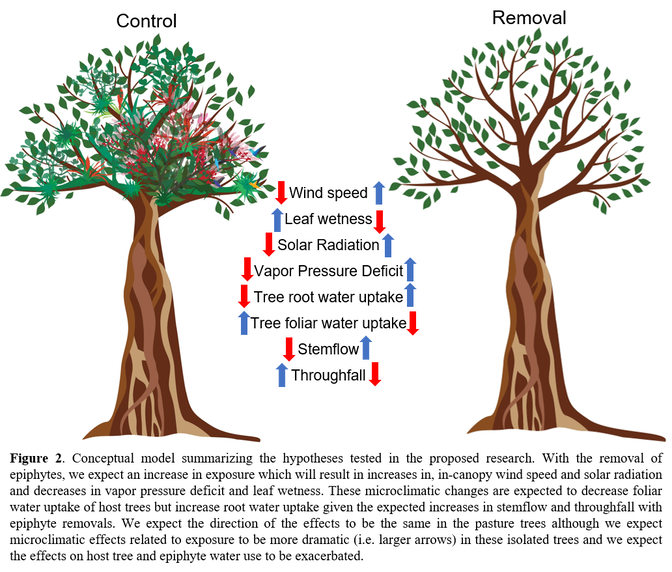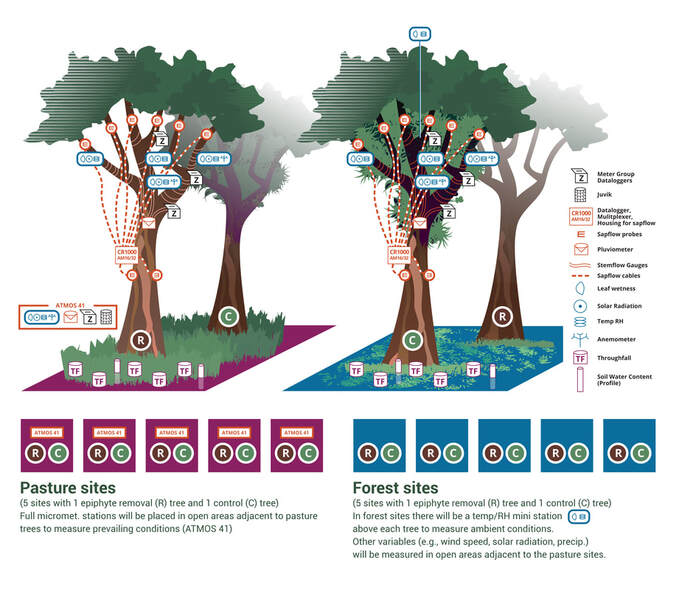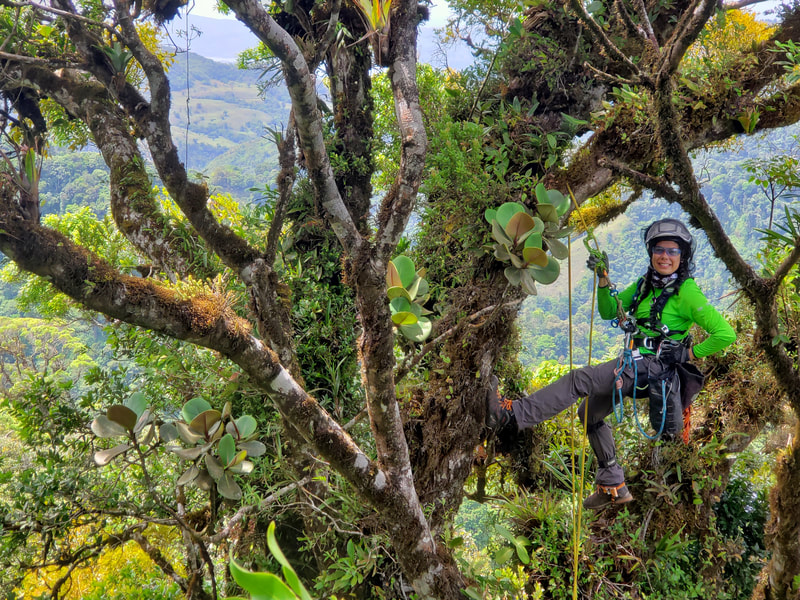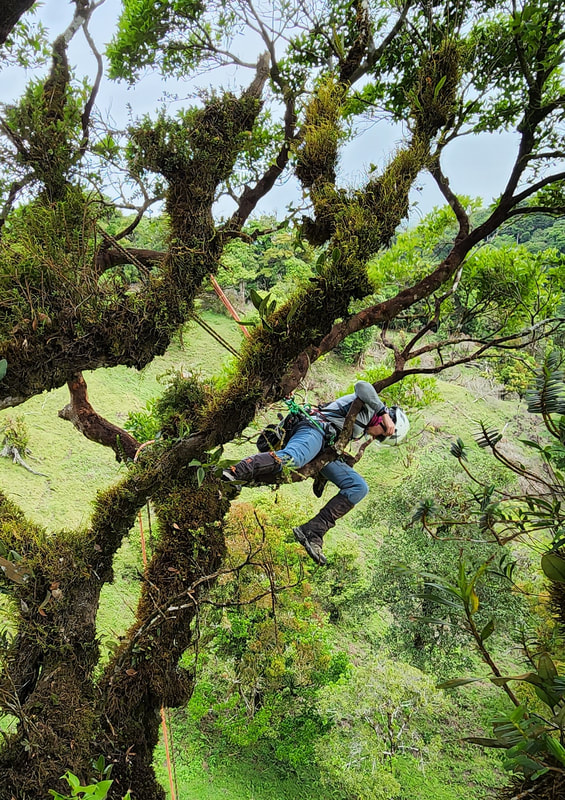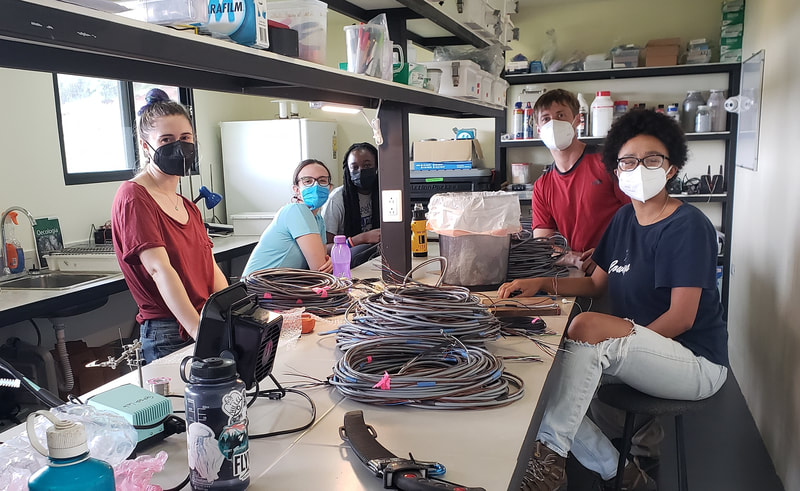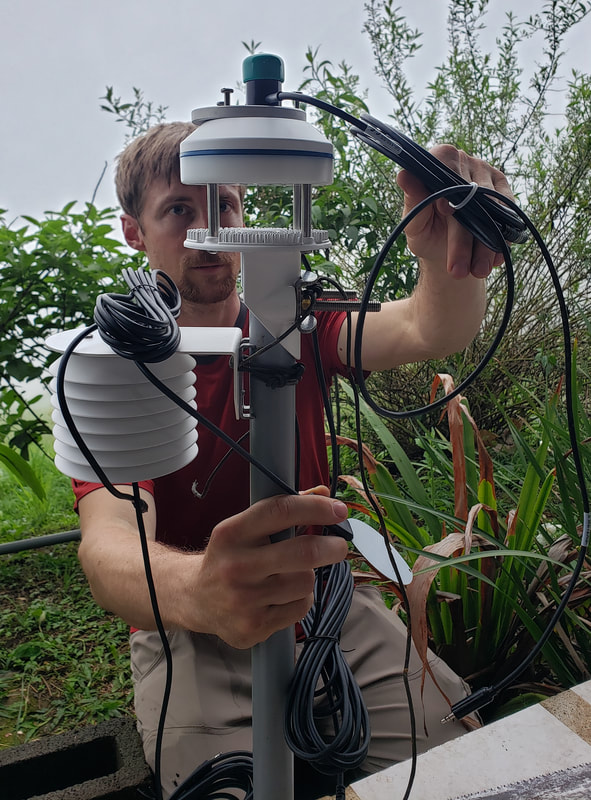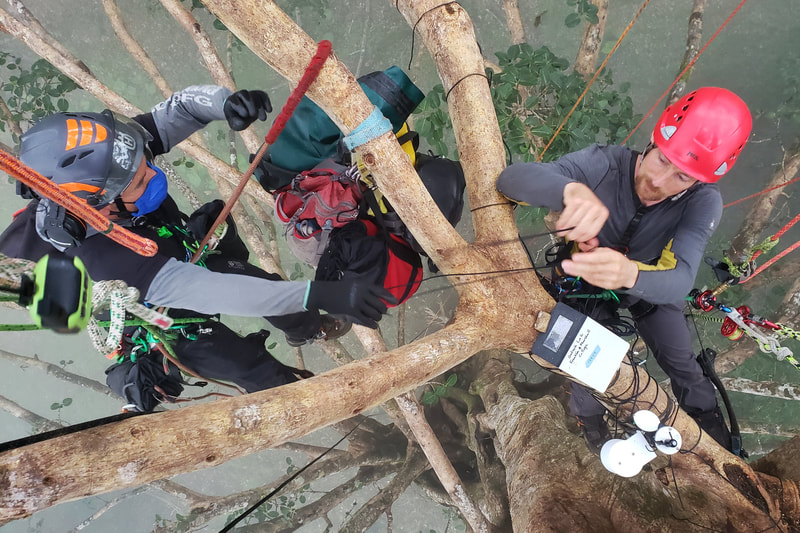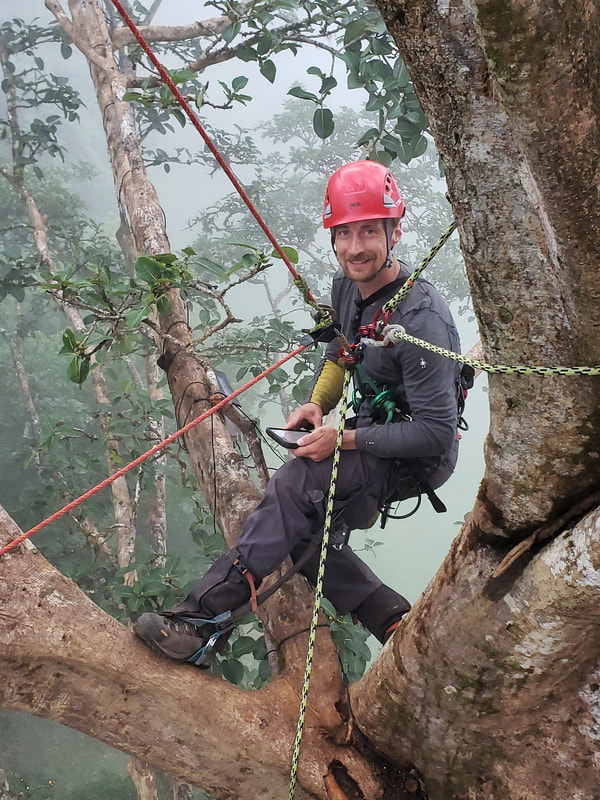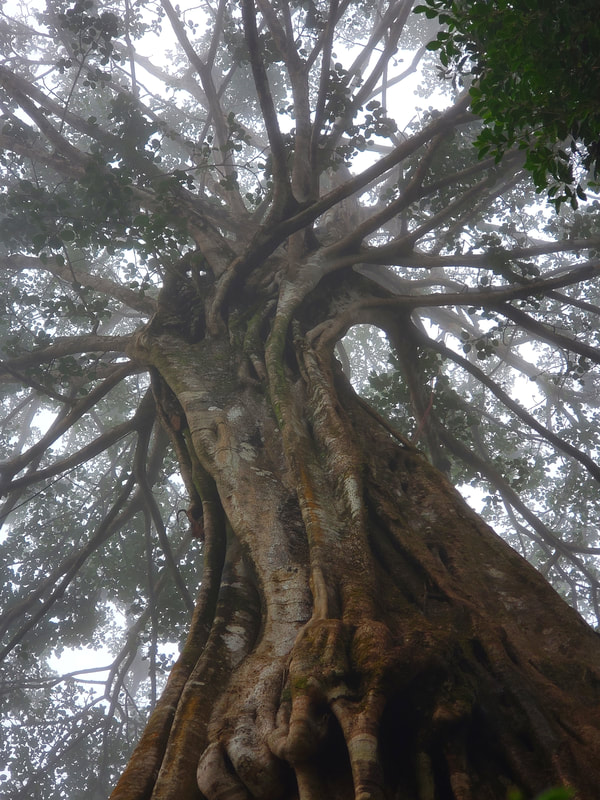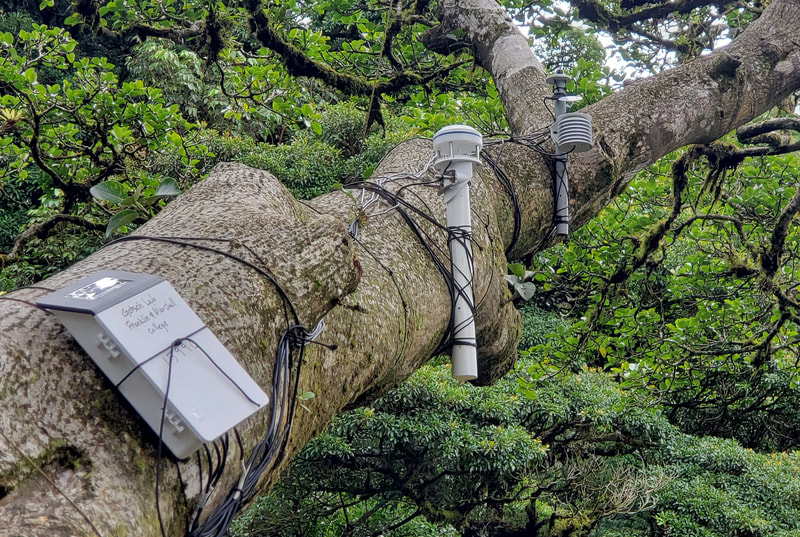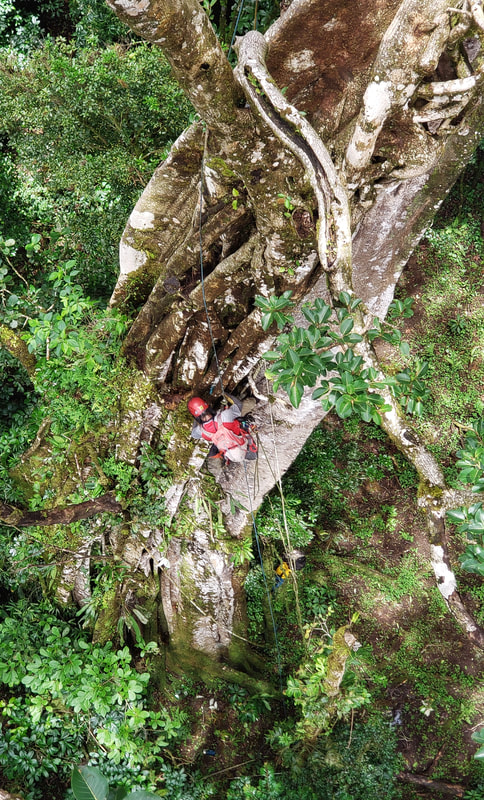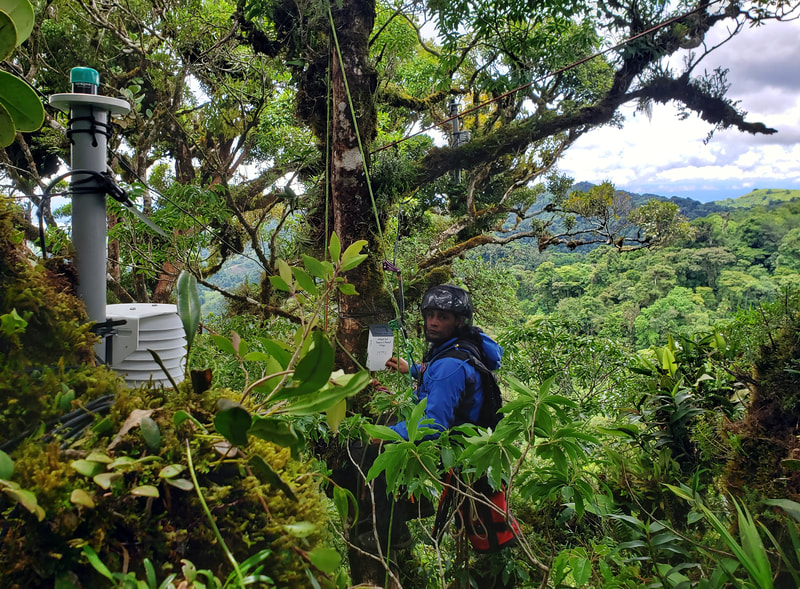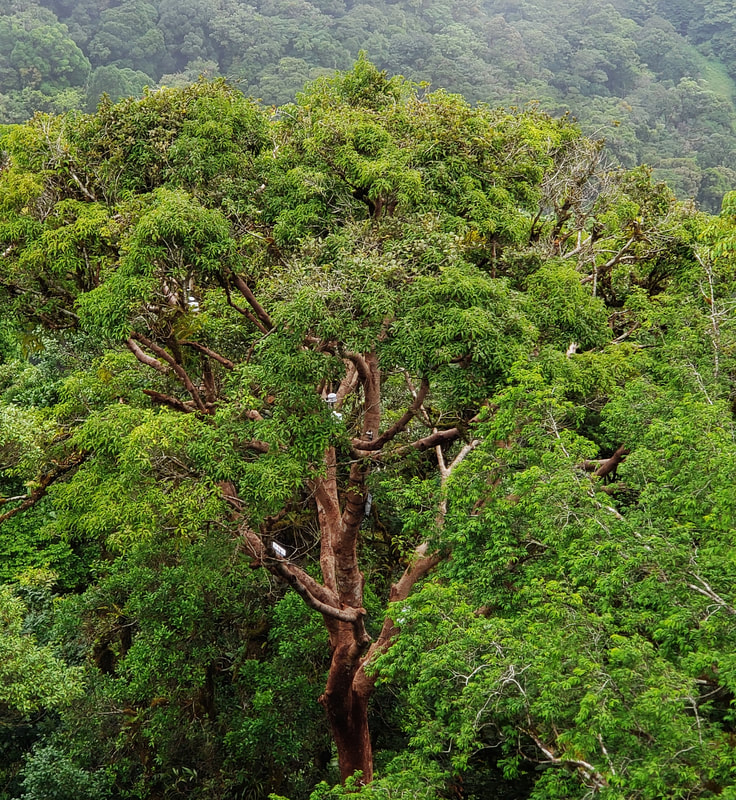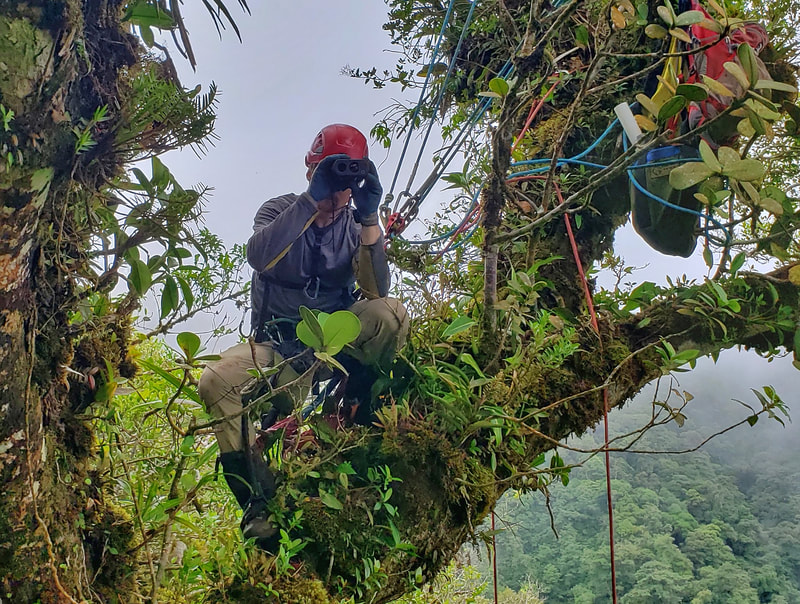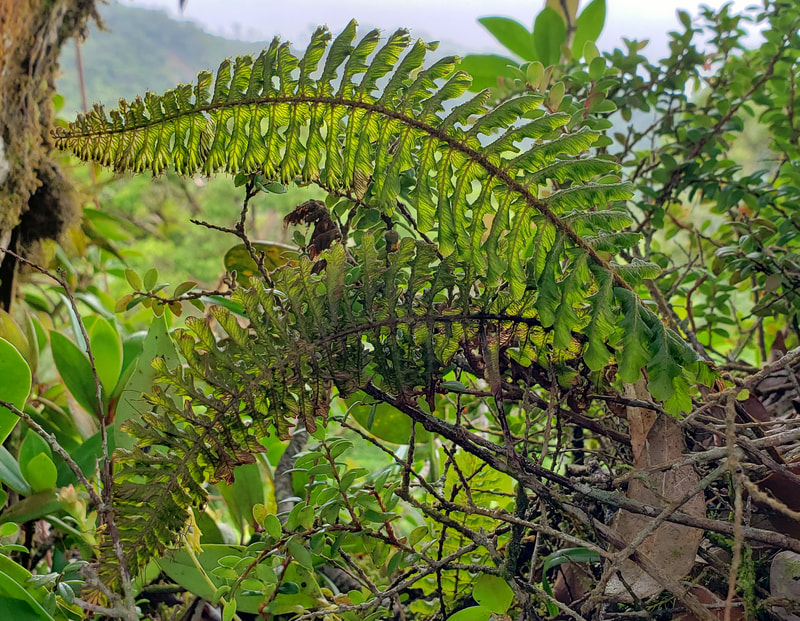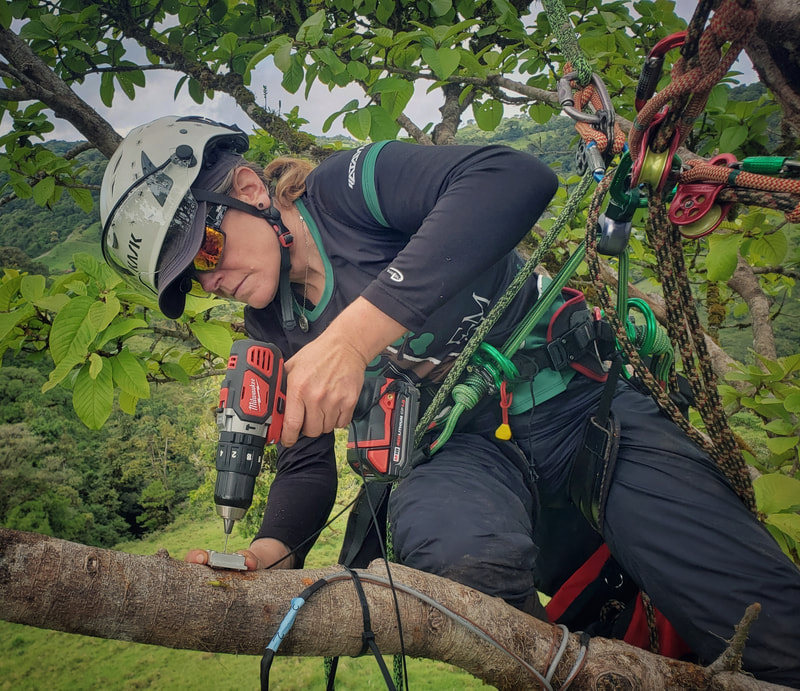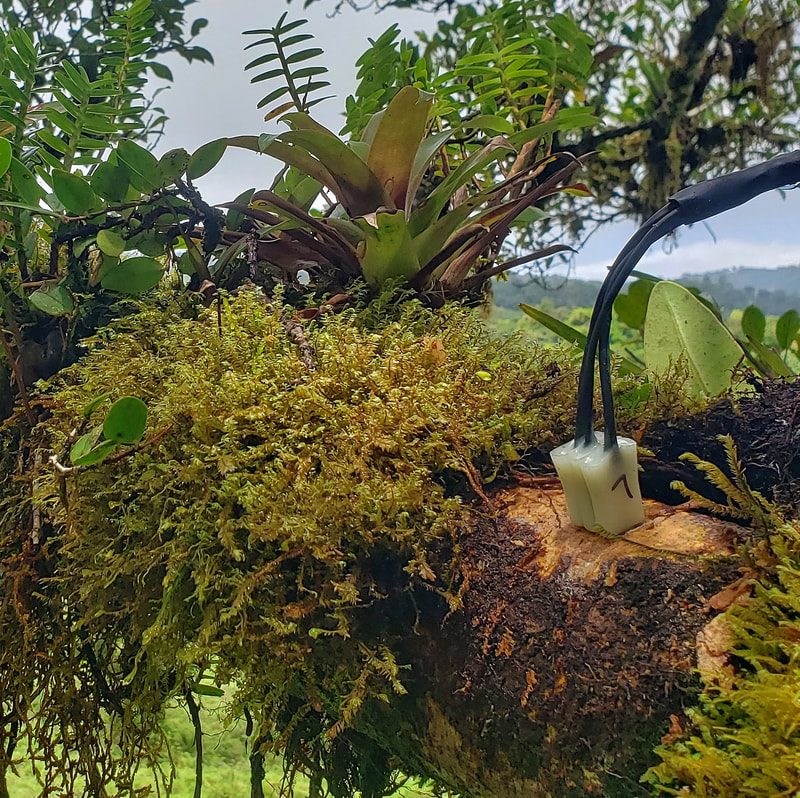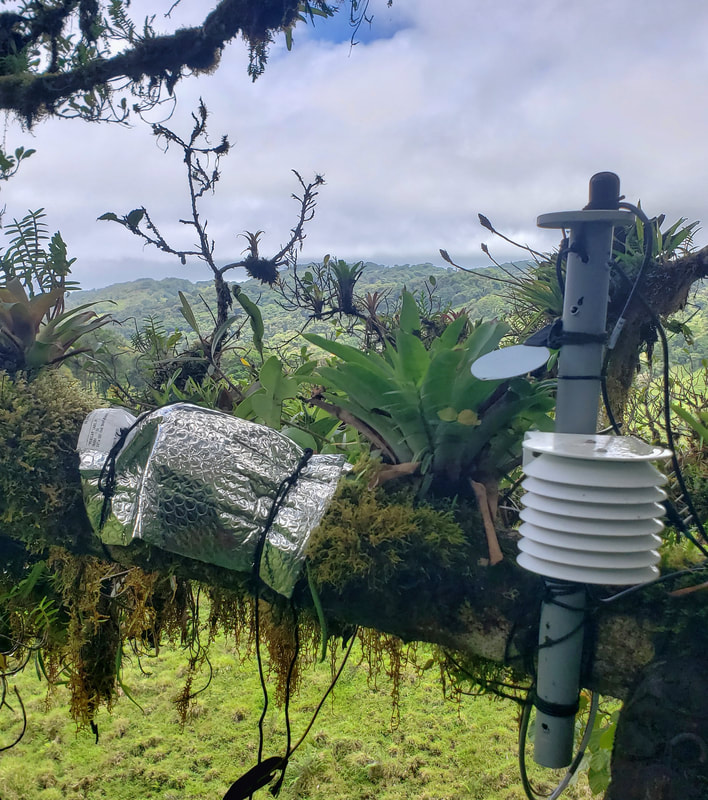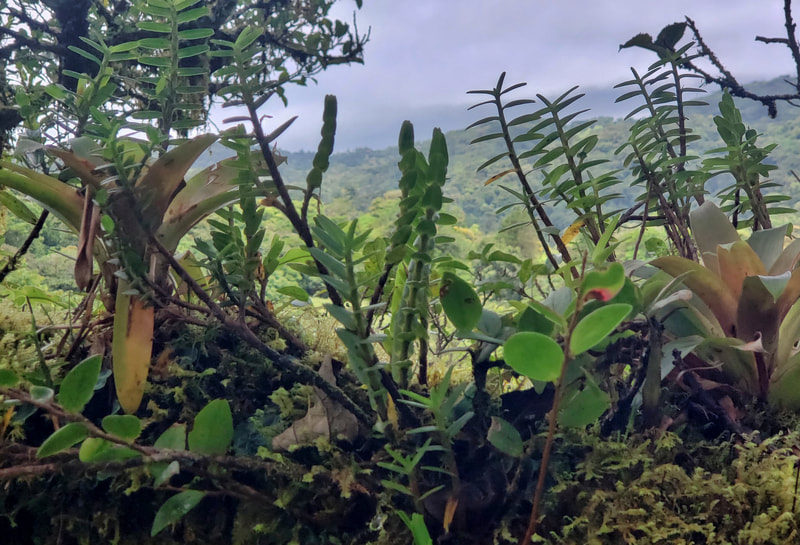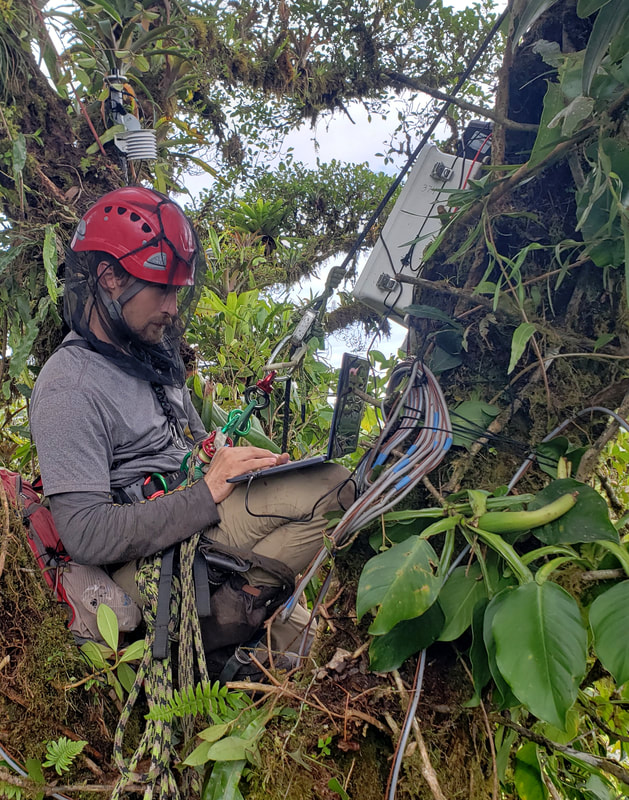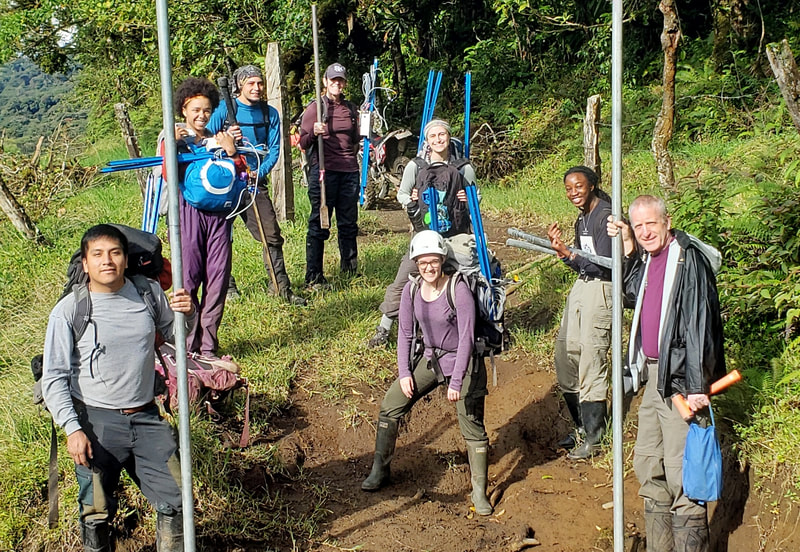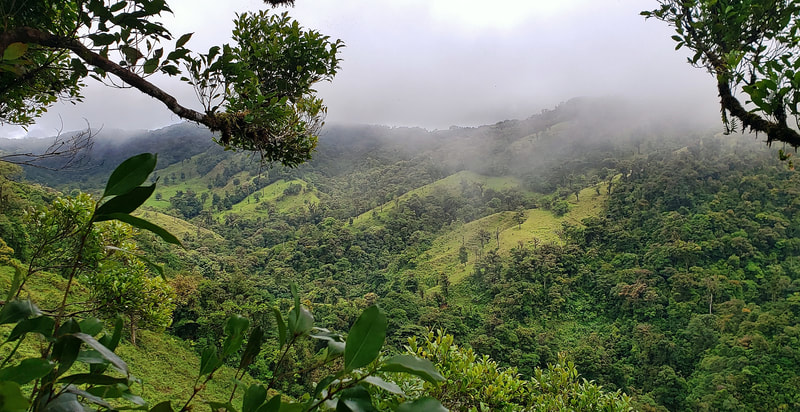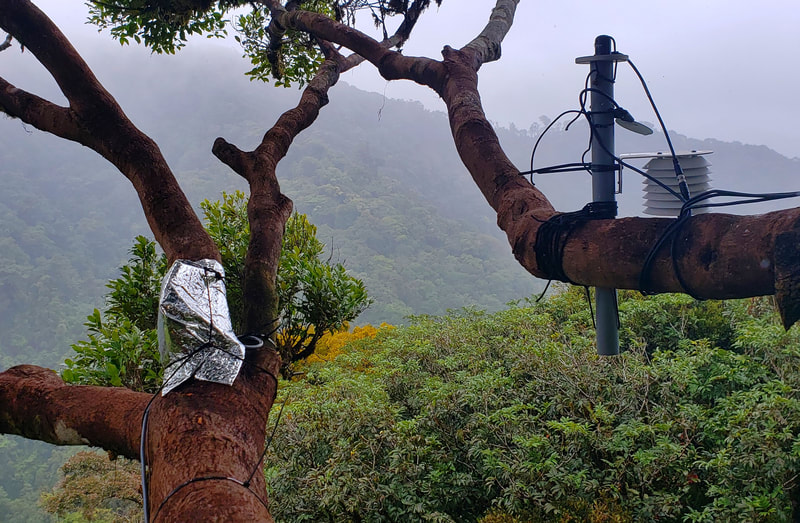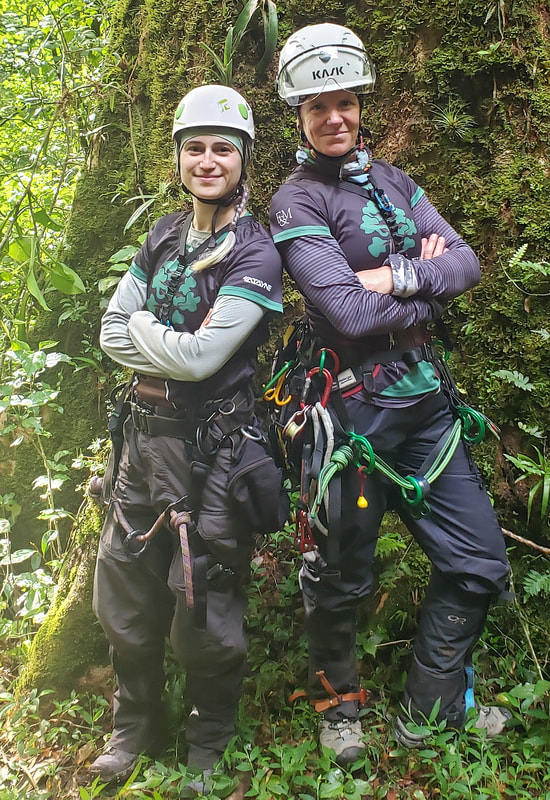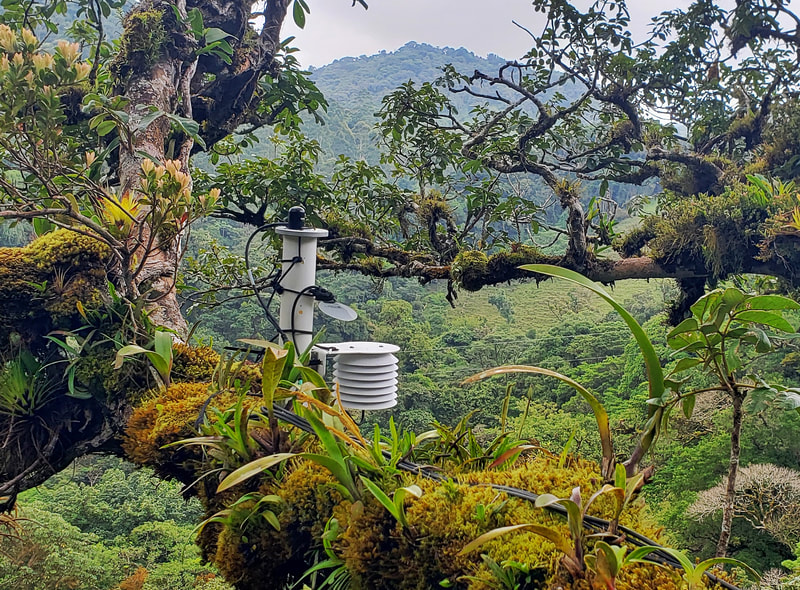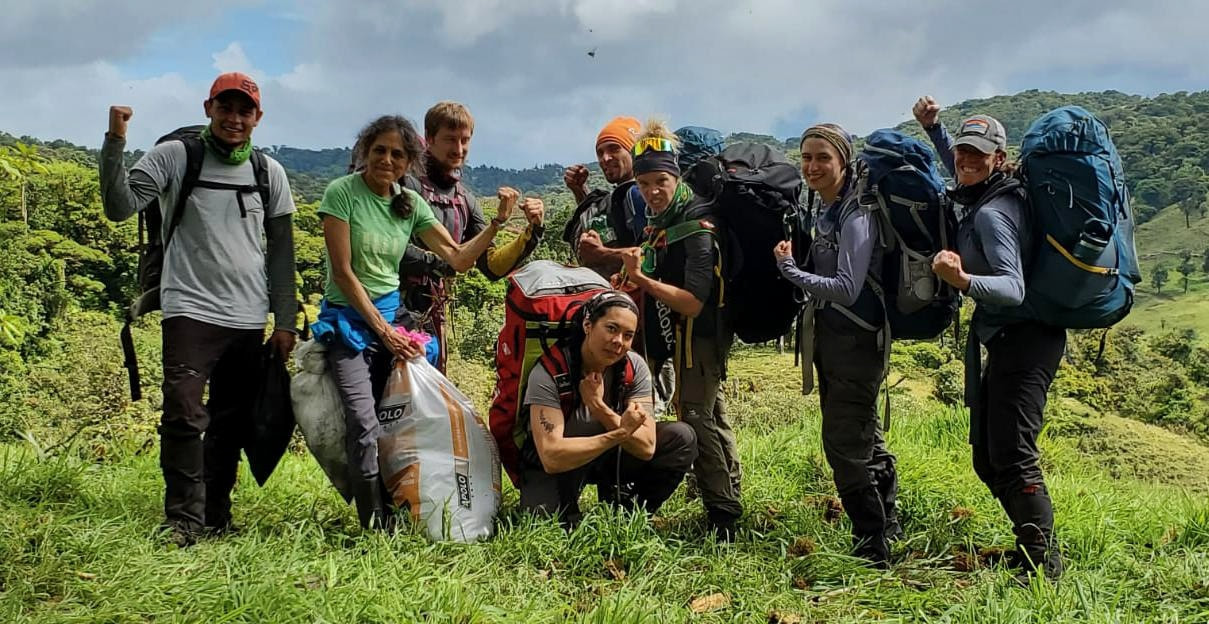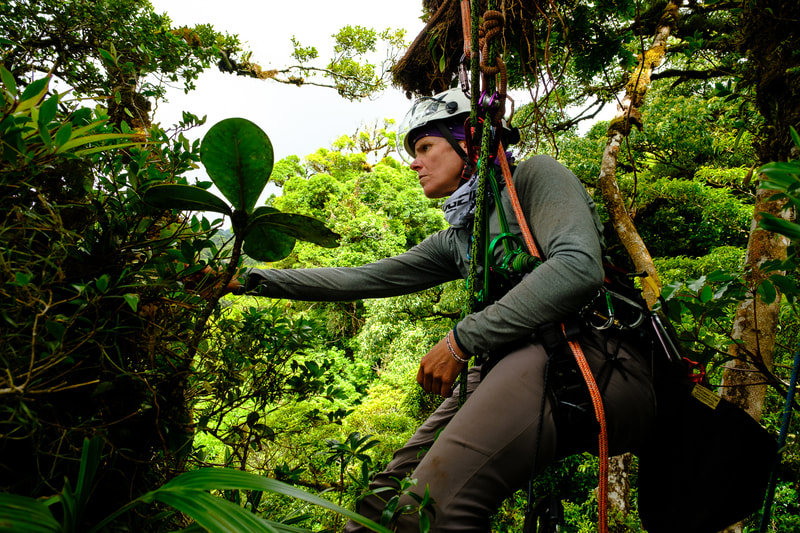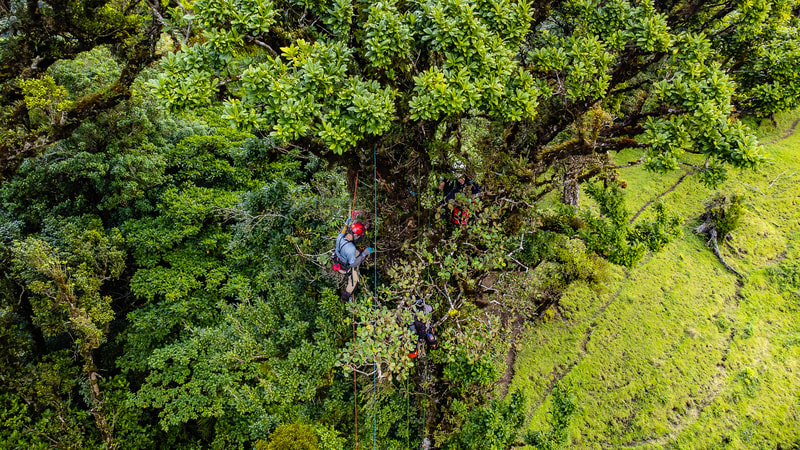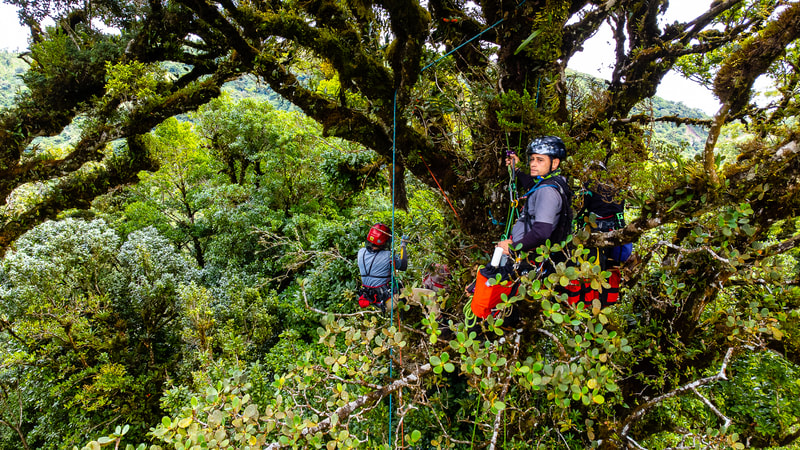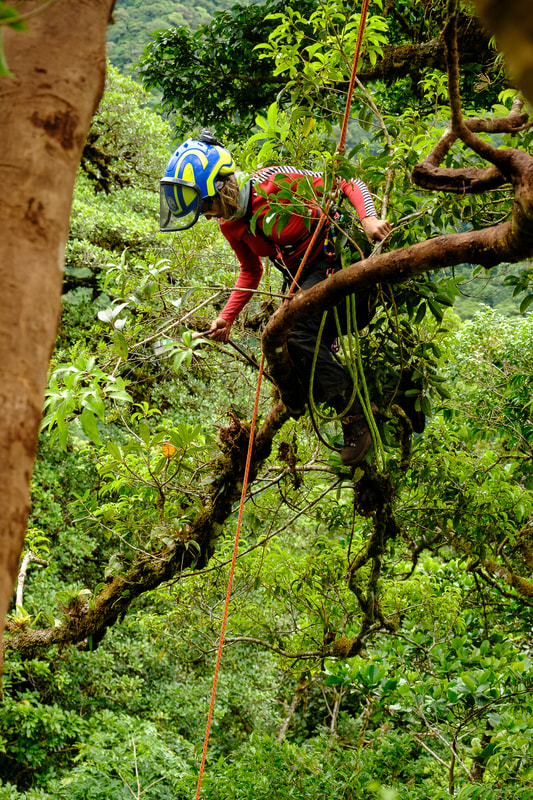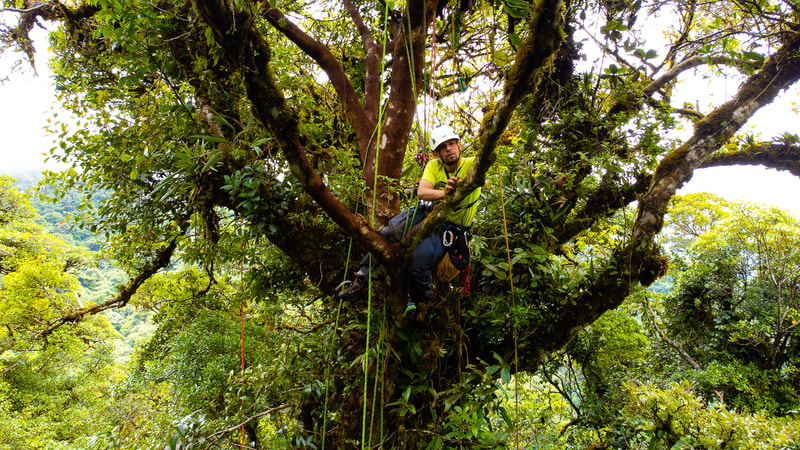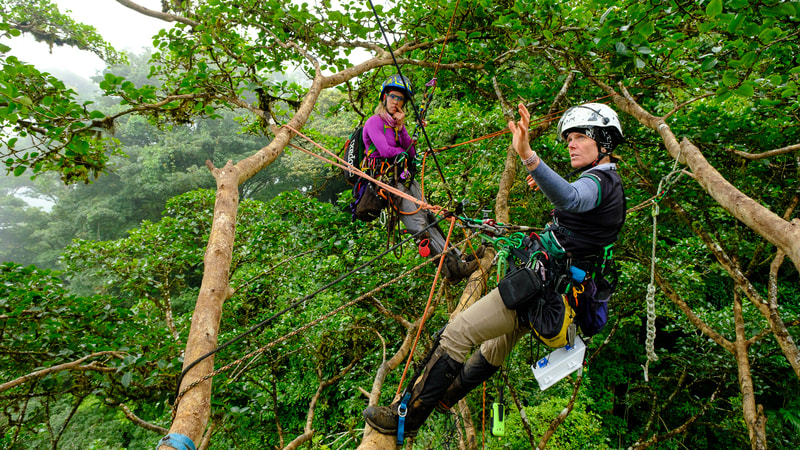Will climate change lead to system shifts on tropical mountains?: the interplay of epiphyte losses on host tree function, microclimate, and hydrology
¿El cambio climático conducirá a cambios en el sistema de las montañas tropicales?: la interacción de las pérdidas de epífitas en la función del árbol huésped, el microclima y la hidrología.*
*Español abajo
Check out our short (3-4 min) experimental design videos:
|
This research is performed in collaboration with Todd Dawson (University of California-Berkeley), Nalini Nadkarni (University of Utah) and Lauren Lowman (Wake Forest University) and is funded by a grant from the National Science Foundation (IOS: 2130110)
Overview:
Tropical Montane Cloud Forests (TMCFs) are under threat due to rapid changes in climate and in fact, recent work suggests that this ecosystem is predicted to contract substantially in the coming decades. In this proposal we address the following timely and important question: How will a loss of the diverse and abundant epiphyte communities in the TMCF impact tree health, energy balance and hydrologic function? We propose to conduct the first large-scale epiphyte removal experiment, in which we strip trees in forest and pasture of their entire epiphyte community. We will measure changes in crown-level microclimate (air temperature, relative humidity, leaf wetness, wind speed, solar radiation) as well as growth, water relations (water potential, sap flow, stomatal traits, carbon isotopes) and ecohydrological parameters (soil moisture, throughfall, stemflow) in and under the trees stripped of their epiphytes and compare those with paired trees with intact epiphyte communities (N= 20 trees). Direct field-based measurements will be coupled with remotely sensed parameters (NDVI, Air Temperature, Leaf Water Content) using a high-precision drone outfitted with an integrated multispectral imaging system. We will construct a numerical model of epiphyte-host tree water relations and couple this model to a land-surface hydrology model to scale up our field-based measurements and predict the effect of this loss on regional energy budgets and canopy water cycling. We will integrate our broader impacts activities to complement our intellectual merit outcomes throughout the course of our research. Field work will take place in five locations in the Monteverde Region of Central Costa Rica.
Intellectual Merit:
TMCFs are important ecosystems to study and conserve due to their exceedingly high biodiversity and endemism as well as the critical roles these forests play in local and regional water cycling. These habitats have had de facto protection due to their relative inaccessibility, but deforestation in lowland regions and increases in global sea surface temperatures indirectly threaten these forests due to the lifting of the cloud base and an increase in drought conditions. Epiphytes, which cover nearly all tree surfaces in the TMCF and contribute substantially to ecosystem function, are the most vulnerable ecosystem components to these changes. A loss of ecosystem function in tropical montane regions would lead to substantial biodiversity loss as well as a destabilization of water resources for human populations. No studies at this scale have addressed the impact that epiphyte loss will have on host-tree and whole-forest function in the TMCF. This work will fill an important gap in our knowledge on the feedbacks among epiphytes and forest functions in the TMCF, and will provide important data for land-use and conservation workers as well as natural resource managers and governments in tropical montane regions concerned with long-term water security.
The focus of this study is on feedbacks between epiphytes and canopy water cycling but there are so many other questions that could be explored in the context of this experiment. If you are interested in collaborating, please reach out!
Hypotheses to be tested:
Our current experiment consists of 20 trees- 10 in forest and another 10 in pasture. Half of each group has been stripped of epiphytes while the other half has their canopy communities intact and will serve as the control. In each of the trees, microclimate stations have been placed throughout the crown (n=3 branches) and there is also a microclimate station near to the trunk. In these stations, air temperature, relative humidity, wind speed, leaf wetness and solar radiation are being measured continuously. These data will be compared to a full weather station nearby to the study trees. In addition, 6-8 sap flow sensors and 1-2 dendrometers have been placed in branches and in the trunk of the study trees to measure transpiration and growth. We are also measuring soil moisture under the trees using soil moisture profile probes that measure down to 1m. In the near future we will be installing the trees with throughfall and stemflow gauges.
Pictures from the experimental setup (April-August 2022). Click on the image to view full size and to scroll through the gallery
DESCRIPCIÓN DEL PROYECTO
¿El cambio climático conducirá a cambios en el sistema de las montañas tropicales?: la interacción de las pérdidas de epífitas en la función del árbol huésped, el microclima y la hidrología.
Investigadora Principal: Sybil G. Gotsch, Franklin and Marshall College
Visión de conjunto:
Los bosques nubosos montanos tropicales (TMCF, por sus siglas en inglés) están amenazados debido a los rápidos cambios en el clima y, de hecho, un trabajo reciente sugiere que se prevé que este ecosistema se contraiga sustancialmente en las próximas décadas. En esta propuesta abordamos la siguiente pregunta oportuna e importante: ¿Cómo afectará la pérdida de las diversas y abundantes comunidades de epífitas en la TMCF a la salud de los árboles, el balance energético y la función hidrológica? Proponemos realizar el primer experimento de remoción de epífitas a gran escala, en el cual despojamos a los árboles en bosques y pastos de toda su comunidad de epífitas. Mediremos los cambios en el microclima a nivel de copa (temperatura del aire, humedad relativa, humedad de las hojas, velocidad del viento, radiación solar), así como el crecimiento, las relaciones hídricas (potencial hídrico, flujo de savia, rasgos estomáticos, isótopos de carbono) y parámetros ecohidrológicos (suelo humedad, precipitación, flujo del tallo) dentro y debajo de los árboles despojados de sus epífitas y compararlos con árboles emparejados con comunidades de epífitas intactas (N= 20 árboles). Las mediciones directas basadas en el campo se combinarán con parámetros de detección remota (color de la vegetación, temperatura del aire, contenido de agua de la hoja) utilizando un dron de alta precisión equipado con un sistema integrado de imágenes multiespectrales. Construiremos un modelo numérico de las relaciones hídricas entre las epífitas y los árboles huéspedes y acoplaremos este modelo a un modelo de hidrología de la superficie terrestre para ampliar nuestras mediciones de campo y predecir el efecto de esta pérdida en los presupuestos energéticos regionales y el ciclo del agua del dosel. Integraremos nuestras actividades de impacto más amplio para complementar nuestros resultados de mérito intelectual a lo largo del curso de nuestra investigación. El trabajo de campo se llevará a cabo en cinco localidades de la región de Monteverde, en el centro de Costa Rica.
Mérito Intelectual:
Los TMCF son ecosistemas importantes para estudiar y conservar debido a su extremadamente alta biodiversidad y endemismo, así como a los roles críticos que estos bosques juegan en el ciclo del agua local y regional. Estos hábitats han tenido protección de facto debido a su relativa inaccesibilidad, pero la deforestación en las regiones de tierras bajas y el aumento de la temperatura global de la superficie del mar amenazan indirectamente estos bosques debido al levantamiento de la base de las nubes y al aumento de las condiciones de sequía. Las epífitas, que cubren casi todas las superficies de los árboles en el TMCF y contribuyen sustancialmente a la función del ecosistema, son los componentes del ecosistema más vulnerables a estos cambios. Una pérdida de la función del ecosistema en las regiones montanas tropicales conduciría a una pérdida sustancial de la biodiversidad, así como a la desestabilización de los recursos hídricos para las poblaciones humanas. Ningún estudio a esta escala ha abordado el impacto que tendrá la pérdida de epífitas en la función del árbol huésped y de todo el bosque en el TMCF. Este trabajo llenará un vacío importante en nuestro conocimiento sobre las retroalimentaciones entre las epífitas y las funciones del bosque en el TMCF, y proporcionará datos importantes para los trabajadores del uso de la tierra y la conservación, así como para los administradores de recursos naturales y los gobiernos en las regiones de montaña tropical preocupados por los bosques a largo plazo. término seguridad hídrica.
¿El cambio climático conducirá a cambios en el sistema de las montañas tropicales?: la interacción de las pérdidas de epífitas en la función del árbol huésped, el microclima y la hidrología.
Investigadora Principal: Sybil G. Gotsch, Franklin and Marshall College
Visión de conjunto:
Los bosques nubosos montanos tropicales (TMCF, por sus siglas en inglés) están amenazados debido a los rápidos cambios en el clima y, de hecho, un trabajo reciente sugiere que se prevé que este ecosistema se contraiga sustancialmente en las próximas décadas. En esta propuesta abordamos la siguiente pregunta oportuna e importante: ¿Cómo afectará la pérdida de las diversas y abundantes comunidades de epífitas en la TMCF a la salud de los árboles, el balance energético y la función hidrológica? Proponemos realizar el primer experimento de remoción de epífitas a gran escala, en el cual despojamos a los árboles en bosques y pastos de toda su comunidad de epífitas. Mediremos los cambios en el microclima a nivel de copa (temperatura del aire, humedad relativa, humedad de las hojas, velocidad del viento, radiación solar), así como el crecimiento, las relaciones hídricas (potencial hídrico, flujo de savia, rasgos estomáticos, isótopos de carbono) y parámetros ecohidrológicos (suelo humedad, precipitación, flujo del tallo) dentro y debajo de los árboles despojados de sus epífitas y compararlos con árboles emparejados con comunidades de epífitas intactas (N= 20 árboles). Las mediciones directas basadas en el campo se combinarán con parámetros de detección remota (color de la vegetación, temperatura del aire, contenido de agua de la hoja) utilizando un dron de alta precisión equipado con un sistema integrado de imágenes multiespectrales. Construiremos un modelo numérico de las relaciones hídricas entre las epífitas y los árboles huéspedes y acoplaremos este modelo a un modelo de hidrología de la superficie terrestre para ampliar nuestras mediciones de campo y predecir el efecto de esta pérdida en los presupuestos energéticos regionales y el ciclo del agua del dosel. Integraremos nuestras actividades de impacto más amplio para complementar nuestros resultados de mérito intelectual a lo largo del curso de nuestra investigación. El trabajo de campo se llevará a cabo en cinco localidades de la región de Monteverde, en el centro de Costa Rica.
Mérito Intelectual:
Los TMCF son ecosistemas importantes para estudiar y conservar debido a su extremadamente alta biodiversidad y endemismo, así como a los roles críticos que estos bosques juegan en el ciclo del agua local y regional. Estos hábitats han tenido protección de facto debido a su relativa inaccesibilidad, pero la deforestación en las regiones de tierras bajas y el aumento de la temperatura global de la superficie del mar amenazan indirectamente estos bosques debido al levantamiento de la base de las nubes y al aumento de las condiciones de sequía. Las epífitas, que cubren casi todas las superficies de los árboles en el TMCF y contribuyen sustancialmente a la función del ecosistema, son los componentes del ecosistema más vulnerables a estos cambios. Una pérdida de la función del ecosistema en las regiones montanas tropicales conduciría a una pérdida sustancial de la biodiversidad, así como a la desestabilización de los recursos hídricos para las poblaciones humanas. Ningún estudio a esta escala ha abordado el impacto que tendrá la pérdida de epífitas en la función del árbol huésped y de todo el bosque en el TMCF. Este trabajo llenará un vacío importante en nuestro conocimiento sobre las retroalimentaciones entre las epífitas y las funciones del bosque en el TMCF, y proporcionará datos importantes para los trabajadores del uso de la tierra y la conservación, así como para los administradores de recursos naturales y los gobiernos en las regiones de montaña tropical preocupados por los bosques a largo plazo. término seguridad hídrica.
